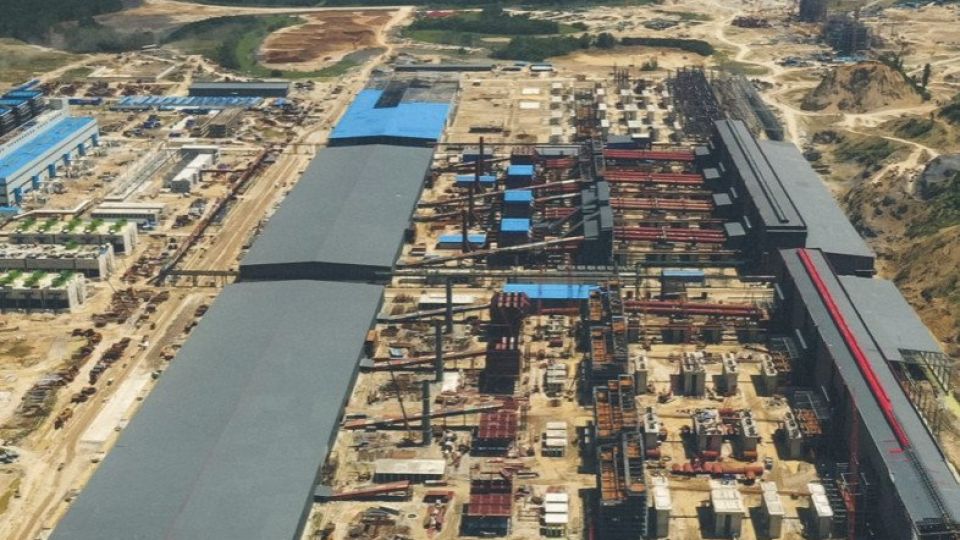January 27, 2023
JAKARTA – Investment Minister Bahlil Lahadalia has expressed regret over a recent deadly riot at a Chinese-operated smelting facility in Central Sulawesi but has claimed, following Chinese requests for increased security and “policy facilitation”, that the government will not give special treatment to any investor.
Bahlil said on Tuesday that the ministry would “never” offer preferential treatment to any foreign firm if no law or regulation compelled it to do so.
The riot, which broke out on Jan. 14 at a facility in Morowali, South Sulawesi, run by PT Gunbuster Nickel Industry (GNI), claimed the lives of a Chinese national and an Indonesian worker, attracting the scrutiny of officials from both countries.
“There should not be one more word about us giving the red carpet to certain foreign investors,” Bahlil said at a press conference.
Indonesia’s economic policy, he said, would follow the same “free and active” doctrine that governed its foreign policy.
The doctrine seeks to prevent the country from wedding itself to any major world power so that it can independently determine its stances on the international stage.
The policy has its roots in a post-independence speech by former vice president Mohammad Hatta titled “Rowing Between Two Reefs”, in which he cautioned the new nation not to align itself too closely with either the United States or the Soviet Union.
“No single country can interfere in Indonesia,” Bahlil continued.
Bahlil said the riot in Morowali was a “pity for all parties” and that he had sent teams to analyze the incident.
The situation, he added, was an “evaluation point” for the firm’s management, foreign and domestic workers, the government and the security apparatus serving the region.
Bahlil called on the parties to avoid engaging in a “blame game” and instead evaluate themselves, claiming that “frictions” in the workplace were a common phenomenon.
“We should be fair to all parties, fair to the workers, fair to the investors and fair to the state,” Bahlil said. “Because these three parties should be positively impacted by investment.”
On the same day, the Investment Ministry published a 2022 full-year investment report that found mainland China and Hong Kong combined accounted for 31 percent of the foreign direct investment (FDI) in Indonesia last year, the largest contribution by nation. The United States, meanwhile, had fallen from fourth to sixth place in FDI, with $3.02 billion, despite having increased its investment 20 percent from the preceding year.
China is also Indonesia’s largest export and import partner, according to Statistics Indonesia (BPS) data.
Bahlil’s comments came after Chinese Foreign Minister Qin Gang spoke by phone with Indonesian Foreign Minister Retno LP Marsudi on Jan. 19.
Qin told his counterpart that China was “encouraging more quality Chinese enterprises” to invest in Indonesia, according to a statement on the Chinese Foreign Ministry’s website.
He added that he hoped Indonesia would “provide more security guarantees and policy facilitation”.
According to the statement, Retno responded that Indonesia “attaches great importance” to Chinese investment and “will make every effort” to ensure the safety of its projects and people in the country.
“We discussed various issues of our bilateral cooperation and committed to strengthen Indonesia-China relations,” Retno wrote on Twitter on Jan. 20.
Santo Darmosumarto, director of East Asia at the Foreign Ministry, confirmed a conversation between the Indonesian and Chinese foreign ministers on various issues, including trade and investment cooperation.
In the call, “Retno spoke about the government’s continued commitment to promote a conducive climate for any foreign project undertaken in Indonesia”, Santo told the Post on Wednesday.
The Chinese Embassy in Indonesia said in a separate press statement released on Jan. 17 that the incident in Morowali had resulted in economic losses and that both Indonesian and Chinese interests were jeopardized by it. The statement expressed appreciation for the government’s efforts to investigate the case.
“The embassy is committed to safeguard the rights and legitimate interests of Chinese nationals and firms in Indonesia,” the embassy wrote.
Ahmad Zuhdi Dwi Kusuma, an analyst from state-owned Bank Mandiri, noted that Chinese investors would be more “cautious” about investment in Indonesia in the future.
Legal and security considerations were “very important”, he added, as most contracts for downstream minerals facilities drawn up by Chinese firms included stipulations for Chinese workers to participate in the operation of the plants.
“[Chinese] investment might decline but not terribly, as the government was quick to handle this issue,” Ahmad said.


